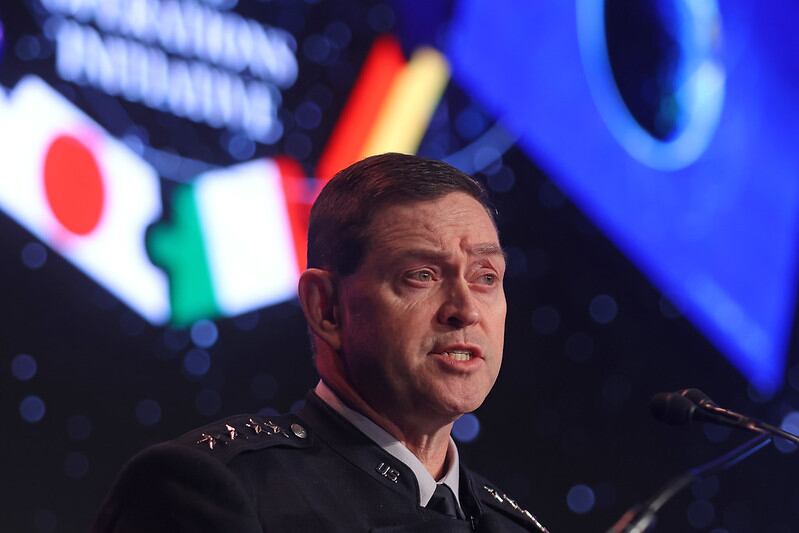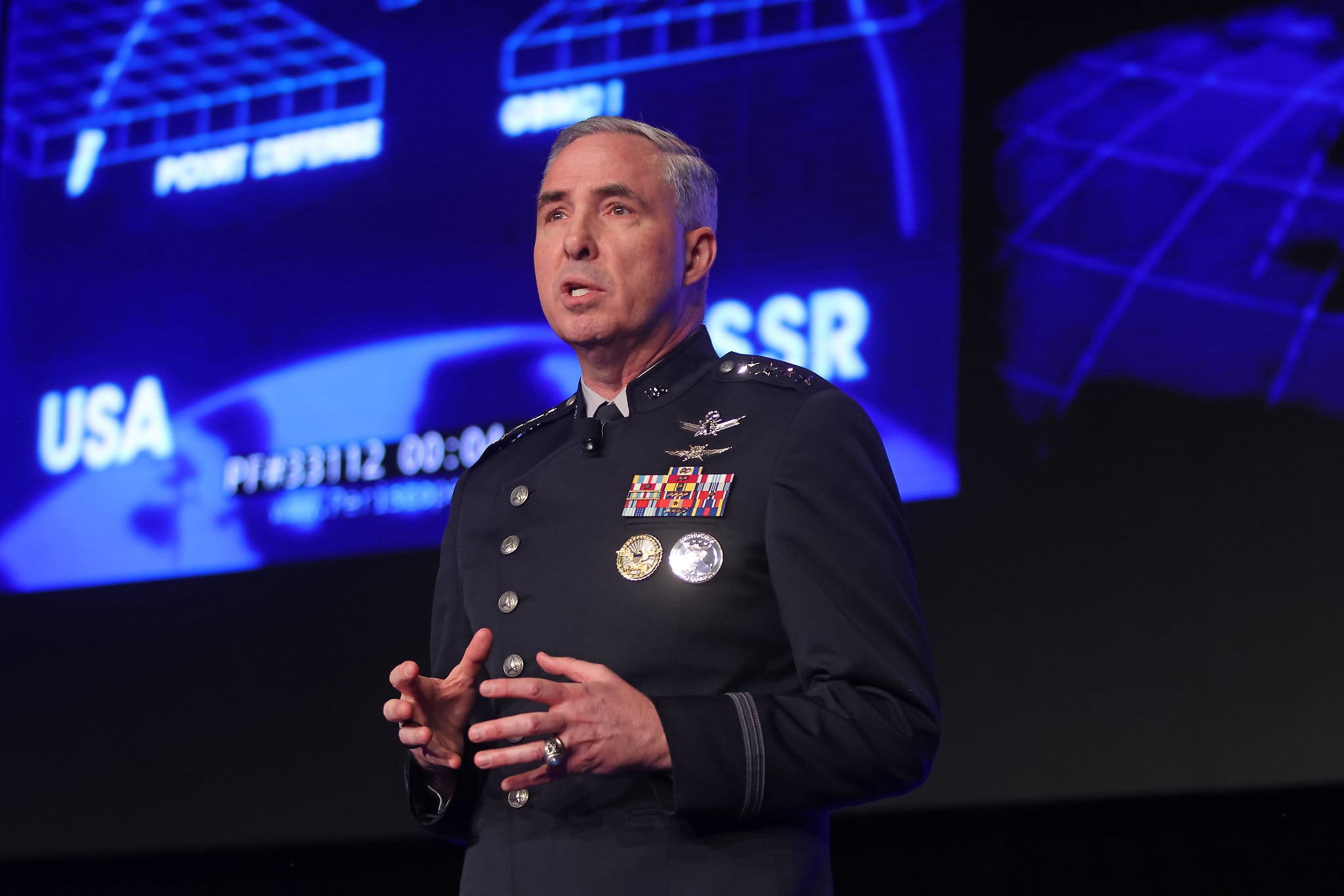A week before the Federal Communications Commission officially signed off on a plan for Ligado Networks to use L-Band spectrum, Rep. Peter DeFazio, D-Oregon, the chairman of the House Transportation and Infrastructure committee, sent a letter to Secretary of Transportation Elaine Chao, warning the plan could harm the Global Positioning System.
The April missive was the first sign some members of Congress were unhappy with the plan, but it would not be the last, as officials from the departments of defense, transportation and other government agencies raised alarms about how Ligado’s system could damage GPS capability for the military and commercial users.
Now, three months after the FCC voted unanimously to approve Ligado’s long-stalled request, at least 32 Senators and 50 Representatives from multiple committees have either signed letters or stated that the FCC should reverse its decision. But it remains unclear if the group is cohesive, or powerful, enough to push through legislation to stop the company from moving forward.
On May 22, the federal government formally requested the FCC reconsider its position. But in late June, a FCC source told C4ISRNET that, barring a dramatic turn of events, FCC Chairman Ajit Pai has no intention of reopening the Ligado vote. “It’s pretty clear at this point that the only way this result changes is through legislation. That’s DoD’s main path forward,” the source said.
C4ISRNET first broke the news that the FCC was moving to approve Ligado’s request to use the L-band spectrum. Described as the range of frequencies between 1 to 2 GHz, L-Band is vital to GPS and other international navigation systems because it can easily penetrate clouds, fog, rain and vegetation. Ligado owns a license to operate the spectrum near GPS, which it says it will use to build a 5G network to boost connectivity for the industrial “internet of things” market.
However, opponents — including the Department of Defense and a number of non-defense industry trade groups — argue that Ligado’s plan would create wide ranging disruptions for GPS usage, hurting both warfighters and commercial ventures in the United States. Ligado has pushed back at those claims.
Legislative state of play
Issues that spread from the defense committees to other areas of Congress aren’t unheard of, said Arnold Punaro, a longtime Congressional staffer and expert on the defense legislative process. However, the Ligado case stands out because of the amount of money involved, and the unified opposition from the defense committee leadership, he said.
“It is an economic issue so this accounts for much of the widespread attention. You are not talking millions, but billions at stake, according to the proponents of the FCC decision,” Punaro said. “What is unusual in my view is the strength of the opposition in DoD, as well as the unified and intense opposition of the leadership of the defense committees. These are not leaders who cry ‘wolf’ or take such positions lightly. They are all in unison, which in and of itself says volumes about the merits of their approach to block it.”
Sen. Jim Inhofe, R-Okla., the chairman of the Senate Armed Services Committee, has organized two legislative proposals. The first is language in the fiscal 2021 National Defense Authorization Act that would potentially slow Ligado’s ability to roll out its plan. The annual defense policy bill is considered must-pass legislation, but the language has a journey through the reconciliation process before it becomes a law, and there is no guarantee the language will survive.
In addition, C4ISRNET previously broke the news of details of Inhofe’s RETAIN GPS act, which would impose massive costs on Ligado were it to be adapted. While the plan had been to move the act forward in June, the language was sidelined temporarily due to the shifting schedule of the NDAA; Senators now expect to consider the bill once the NDAA negotiations are finished, although the legislative calendar is shrinking by the week.
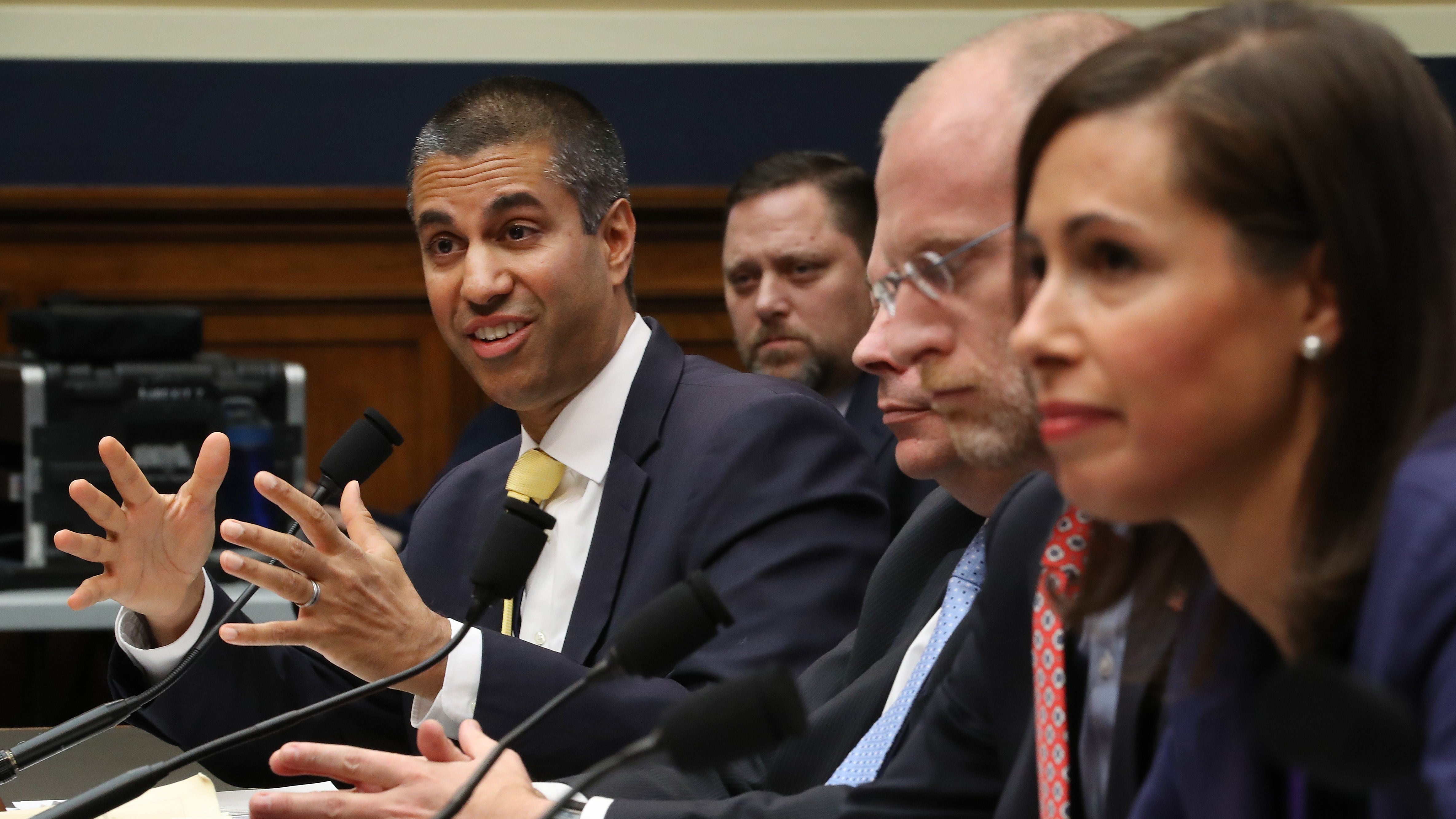
Meanwhile, the House version of the NDAA includes language that would effectively bar Ligado from receiving any funds from the Pentagon. The author of that language, Rep. Michael Turner, R-Ohio, the House Strategic Forces Subcommittee’s ranking member, also introduced an amendment this week that would require a new set of independent tests from Sandia Labs to confirm if Ligado will interfere with GPS capability. It would also pause Ligado’s work until tests are complete.
That amendment will be debated during next week’s floor arguments on the NDAA. Conversely, an amendment from Reps. Michael Burgess, R-Texas, and. John Shimkus, R-Ill., two senior members of the House Committee on Energy and Commerce, would strike Turner’s previous Ligado language from the bill.
“In terms of the NDAA, if there are provisions in both bills, then they will stay in the conference report in some fashion,” Punaro predicted. “In terms of the separate bills, this is probably more of a challenge given the limited timeframe left prior to October 1, when both houses will basically go home for the election. But with Chairman Inhofe in the lead, I would not discount this approach.”
The company has supporters on the Senate side as well. A June 4 letter from eight senators, including Sen. Mike Lee, R-Utah and Sen. Mark Warner, D-VA., who have both issued statements of support for the Ligado decision, essentially served as a way for the FCC to respond to challenges from the Pentagon after SASC only invited defense officials to testify on the issue at hearing earlier this year.
RELATED
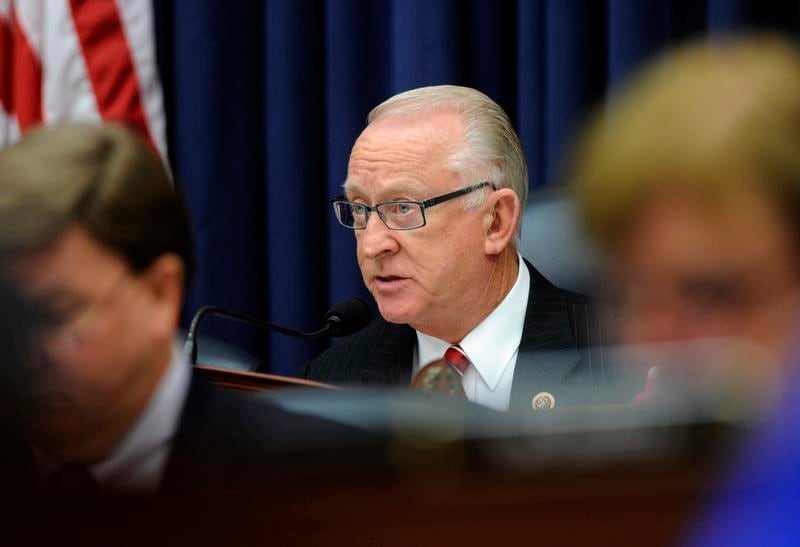
Amid the hearings and statements, one key player has yet to weigh in on the legislative fight: Sen. Roger Wicker, R-Miss., the chairman of the Senate Commerce committee as well as a member of the SASC. During hearings, Wicker’s comments didn’t offer his insight into the issue, but he did offer three FCC commission members a chance to deny accusations from DoD officials and Inhofe that the FCC vote happened in secret.
If Wicker were to push legislation protecting the FCC’s decision, it would set up an intra-party fight with Inhofe, and give the commission top cover. And any legislation, for or against Ligado, now needs to be weighed against the calendar for legislative action, which is rapidly shrinking and complicated by major issues like another COVID-19 funding bill. Wicker’s staff did not respond to a request for comment.
Another avenue popped up this week. On Wednesday, Rep. Ken Calvert of California, the top Republican on the Defense Appropriations Subcommittee, said that if the FCC did not reverse itself, he would look to take action through the appropriations process.
“I think when we return in September, we may need to include such a provision in the continuing resolution to address this problem, if it’s not resolved during the FCC appeals process,” Calvert said, according to Politico.
“There have been many issues over the years when committees of prime jurisdiction push positions that were opposed by the defense committees, and almost always the defense communities prevail,” Punaro said. “Given the almost 10 years that this has been under consideration, it’s not going to be over no matter which side prevails in the near-term.”
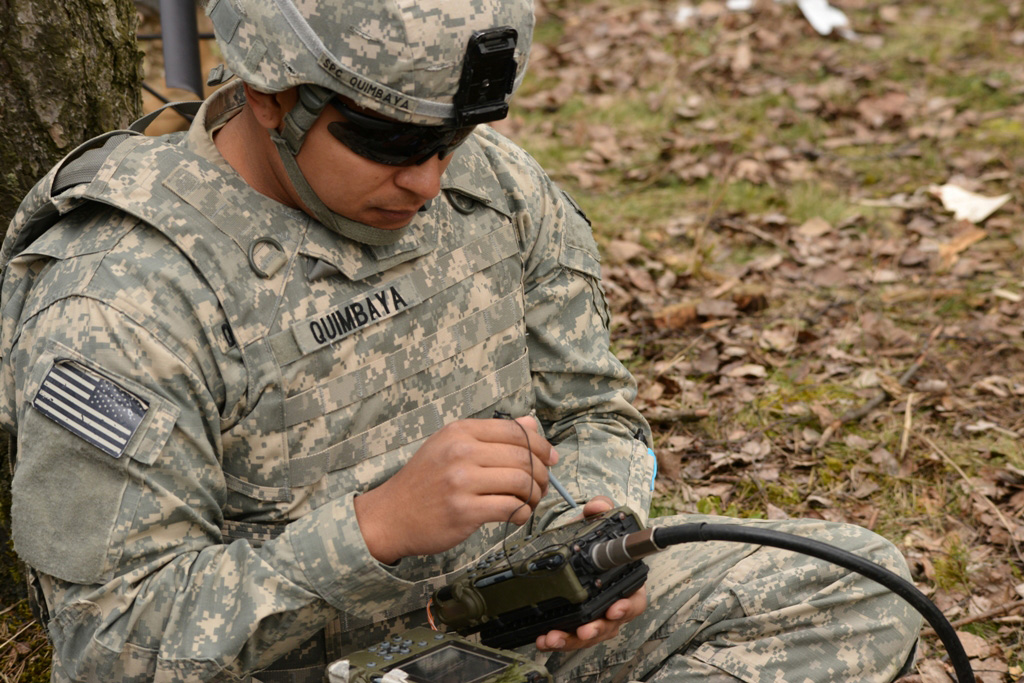
A timeline of opposition
Given the importance of congress in this fight, the breadth of anti-Ligado sentiment is notable. Opposition is both bipartisan and bicameral, with key members of multiple committees weighing in.
- The first Congressional concerns were raised before the vote even occurred. In an April 13 letter, DeFazio, and Rep. John Garamendi, D-California, who chairs the House Armed Services Committee subcommittee on readiness, sent a letter to Chao to “express our strong concerns about a decision pending at the Federal Communications Commission (FCC) which could jeopardize not only the development of a back-up signal to GPS, but GPS itself.” The two also authored an April 17 letter to the FCC expressing displeasure with the expected commission approval.
- By April 17, still days before the FCC would officially vote, Inhofe SASC ranking member Sen. Jack Reed, D-R.I., and House Armed Services Committee ranking member Rep. Mac Thornberry, R-Texas, wrote to President Donald Trump urging him to fight against the expected FCC decision. After the vote, the three men joined HASC chairman Rep. Adam Smith, D-Wash., to write an op-ed for C4ISRNET calling for the FCC to withdraw its approval. It would not be the last time the four men would fight against the commission decision.
- On May 7, 22 members (13 Democrats and nine Republicans) from the House Armed Services Committee, including Smith and Thornberry, wrote to the FCC, raising questions about how the Ligado plan was concocted and calling for more information. Since that time, the committee has heard more from Ligado, and it is not clear if the signatories questions have been answered. But on May 21, Smith and Thornberry issued a letter accusing the FCC commissioners of not reading classified materials provided by the Pentagon.
- On May 14, 32 Senators wrote a bipartisan letter urging an FCC reversal of the Ligado decision. The letter, led by Inhofe and Reed, included 20 Republicans and 12 Democrats. Because the FCC falls under the Commerce, Science and Transportation Committee, it’s notable that five senators on both Commerce and SASC — Sens. Deb Fischer, R-Neb.; Dan Sullivan; R-Alaska, and Rick Scott, R-Fla.; Gary Peters, D-Mich.; Tammy Duckworth, D-Ill. — signed the missive, as did Commerce’s top Democrat, Sen. Maria Cantwell, D-Wash. Other members of note included Agriculture, Nutrition, and Forestry Chairman Pat Roberts, R-Kan.; Finance Chairman Chuck Grassley, R-Iowa; Energy and Natural Resources Chairman Lisa Murkowski, R-Alaska.; Budget Committee Chairman Mike Enzi, R-Wyo., as well as Republican Conference Chairman John Barrasso, R-Wyo., and Vice Chair Joni Ernst, R-Iowa.
- On June 11, three key members of the HASC issued a letter calling for the FCC’s Inspector General to open a review of what they describe as a potential conflict of interest from a member of an FCC advisory group. The letter was sent from Reps. Jim Cooper, D-Tenn., the chairman of the HASC Strategic Forces Subcommittee; Turner, the ranking member on that same committee; and Elise Stefanik, R-NY., the ranking member on the Subcommittee on Intelligence and Emerging Threats and Capabilities. All three had also signed the May 8 letter.
- The most recent letter came July 9, from 27 members of the House Agriculture Committee. Led by committee chairman Rep. Collin Peterson, D-Minn., and Rep. Glenn Thompson, R-Pa., the letter contained 10 Democrats and 17 Republicans, concerned that the Ligado plan “will force numerous industries, including agriculture, who use this technology to either suffer interference to their GPS devices, initiate burdensome and ill-defined procedures to address this interference, or to pay to replace them.” The authors also said: “We must ensure the United States continues to be a leader in 5G deployment and development. ... However, we believe the Ligado decision will slow the progress of our economy and interfere with the operation of GPS. For these reasons, we urge the Federal Communications Commission to immediately reconsider their Order on this matter and provide a path forward addressing our concerns.”
Joe Gould in Washington contributed to this report.
Aaron Mehta was deputy editor and senior Pentagon correspondent for Defense News, covering policy, strategy and acquisition at the highest levels of the Defense Department and its international partners.


